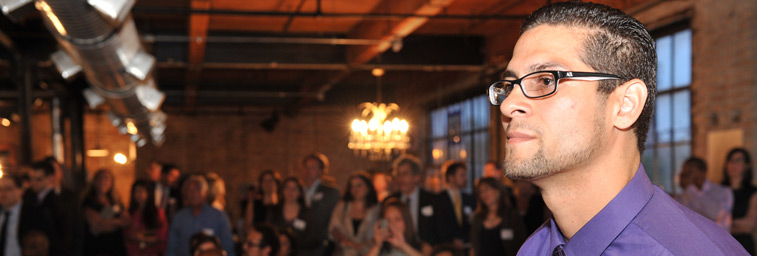False and Coerced Confessions
Definition
The exoneree falsely confessed if (1) he or she made a false statement to authorities which was treated as a confession, (2) the authorities claimed that the exoneree made such a statement but the exoneree denied it, or (3) the exoneree made a statement that was not an admission of guilt, but was misinterpreted as such by the authorities.
What causes people to give false confessions? (Tribune)
Case Examples
Remedies
Reforms that would have prevented most of the documented Illinois false confessions are these:
- Limiting the duration of interrogations. A national study by Steven A. Drizin of the Center on Wrongful Convictions and Richard A. Leo of the University of California-Irvine ("The Problem of False Confessions in the Post-DNA World," North Carolina Law Review, March 2004) found that 84% of false confessions occurred after interrogations of six hours or longer and that the average duration was more than 16 hours. Drizin and Leo recommend that interrogations in excess of 12 hours should be categorically inadmissible in court and those of more than six hours should be admissible only if the prosecution can establish beyond a reasonable doubt that they were voluntary.
- Polygraphs and voice-stress analysis should be banned. There is in fact no reliable lie-detection technology, but innocent suspects often believe — and are led to believe — that the machines are reliable. Many suspects, thus, are eager to be tested, anticipating that the test will prove they are telling the truth. Then, they are devastated when told — often falsely — that they failed. Confessions then follow. The best remedy would be for the courts to suppress any statement made by suspects after they have been told that polygraphs or voice-stress analyzers indicated that they were lying.
- Lying by interrogators, which occurs in virtually all false confession cases, should be strictly limited. Lying is presently permitted under 1969 Supreme Court decision known as Frazier v. Cupp. The interests of justice would be better served by the suppression of all confessions by juveniles, the mentally retarded, and the mentally ill to whom interrogators have lied. Likewise, confessions by normally functioning adults should be suppressed if they were told lies involving family members. Kevin Fox, for instance, was told that his wife no longer believed him and his family stopped loving him.
- Implicit promises of leniency should be prohibited. Rarely do interrogators make explicit promises of leniency — for example, that if the suspect confesses, he will not be charged. If proven, such promises would result, under current law, in suppression of any ensuing confessions. Police, however, are taught a process known as pragmatic implication. The idea is to suggest alternative scenarios for crimes — one that it was cold, calculating, and premeditated, the other that it was impulsive, that the result was unintended, or that it was self-defense. The implication is clear — accepting the latter scenario will mitigate, or perhaps eliminate, punishment. To a suspect, even if innocent, it may seem reasonable to cut his losses and confess once he is convinced that continued denials would be futile. Implicit promises should be banned because their effect is the same as explicit ones.
- Hypothesizing blackout scenarios, as was done in the Gary Gauger case, should be prohibited. When an innocent suspect like Gauger is led to believe there is rock-solid evidence that he committed a crime he cannot remember, the only remaining question is why he cannot reconcile the evidence with his memory. At this point, the interrogator offers an explanation — perhaps he committed the crime in a blackout or amnesiac trance. Then the suspect is asked to imagine how he might have committed it, and he compliantly begins to speculate. What he says, naturally, is likely to include information consistent with whatever facts of the crime he learned during his preceding interrogation. Those facts then are misconstrued as knowledge to which only someone involved in the crime would be privy. Because there no doubt are instances when guilty suspects feign memory loss, it would not be reasonable to prohibit police from ever advancing hypothetical amnesiac scenarios. However, any statement that follows should be suppressed unless the prosecution can show by clear and convincing evidence that the statement includes a substantial amount of accurate information that was neither imparted during interrogation nor was in the public domain at the time.
- Judges should hold pretrial reliability hearings before confessions are admitted into evidence. Under current law, the only prerequisite is that confessions be voluntary. Reliability simply is not an issue. This should change. Reliability hearings already are common regarding other kinds of evidence — eyewitness identifications, informant testimony, novel forensic evidence, and hearsay. There is no logical reason that confessions should be an exception. There already is a general consensus on what makes an inculpatory statement reliable — substantial corroboration, which is amenable to objective examination before trial. It certainly seems that the question of reliability of a confession is more likely to be accurately resolved by a judge in pretrial proceedings than by a jury in the emotion-charged atmosphere of trial.


